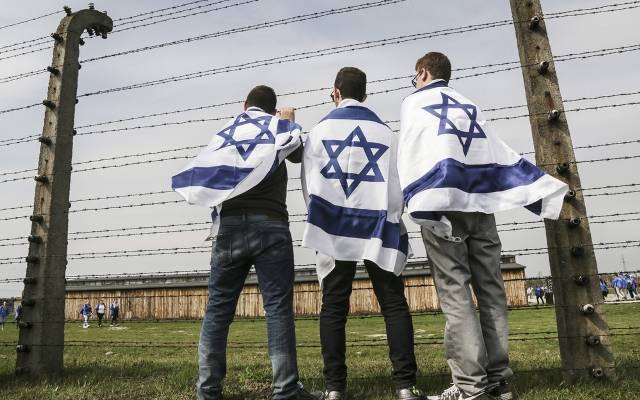The Israeli Education Ministry declared that the new Polish law banning references to Polish complicity in the Holocaust will not stop Israeli high schoolers from hearing the truth.
By: Batya Jerenberg
The attempt to revise history will not work on educators who bring eleventh and twelfth graders to Poland every year, announced Education Ministry Director Shmuel Abuav.
Israeli schoolchildren who go to Poland to learn about the Holocaust first-hand will still hear about the role locals played during World War II. This was affirmed Thursday by Abuav, speaking to Hadashot News. “The guides will tell the truth as it happened,” he said. “No law will silence the instructors and guides, or the story we must tell the younger generation.”
The controversial bill to forbid calling Nazi camps “Polish” passed in Poland’s Senate Wednesday night, even though the Polish and Israeli prime ministers had agreed earlier to hold discussions to reach a mutual understanding first.
Most of the focus on the law has been on the part which states that anyone blaming the Polish nation as a whole for Nazi crimes could receive a 3-year jail sentence. However, what may be more relevant to lay people and historians who discuss the Holocaust is a different sentence: The one that allows the prosecution of anyone who “grossly diminishes the responsibility of the true perpetrators of said crimes.”
Israeli officials and Holocaust historians agree that it is factually incorrect to call the hundreds of labor, concentration and death camps set up in the country “Polish,” as the Germans had full control there during World War II. So when President Adrej Duda noted in defense of the bill that there was no “institutionalized” participation by Poland or its people in the Holocaust, he was technically correct as there were no independent Polish institutions per se left after Hitler invaded on September 1, 1939.
However, there were many thousands of Poles who actively aided the Nazis, for example by joining in the persecution as underlings, killing Jewish escapees who tried to join their partisan units, or even simply by informing on Jewish neighbors.
Israel’s Foreign Ministry condemned the bill’s passage, tweeting, “The State of Israel opposes categorically the Polish Senate decision. Israel views with utmost gravity any attempt to challenge historical truth. No law will change the facts.”
Others are asking for more concrete action, such as stopping the Israeli trips to Poland altogether. In a letter to Poland’s ambassador in Israel, Ezra Youth Movement General Director Shaul de Malach wrote, “Those who will not recognize and take responsibility for their actions and their part in the Holocaust of the Jewish nation, cannot continue to enjoy the funds provided by the nation whom they harmed.”
One of the leading rabbis in the Ukraine, Moshe Azman, suggested to Education Minister Naftali Bennett that the youth visit the Ukraine instead, which would also be highly educational, as about a million Jews died there. “In our country, unfortunately, there are many places connected with the Holocaust,” he wrote.
President Duda now has 21 days to sign the bill into law.
